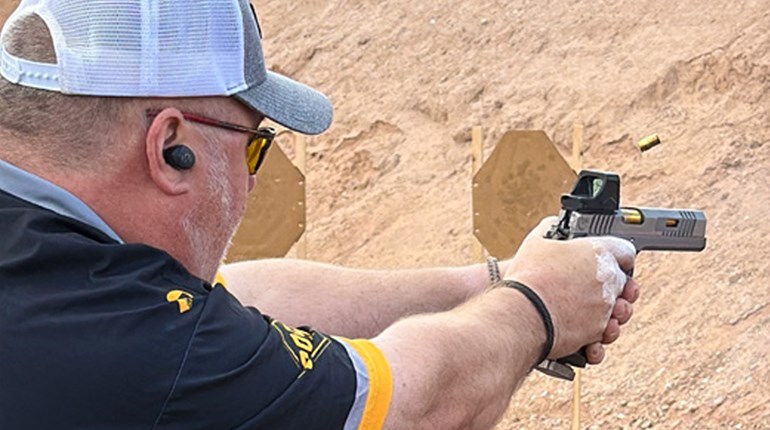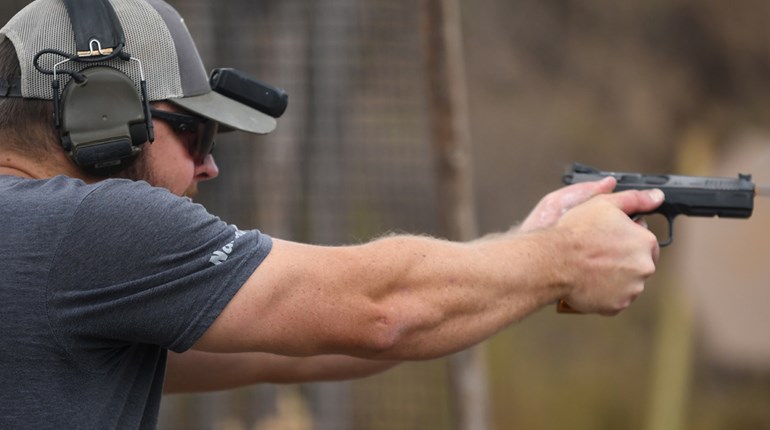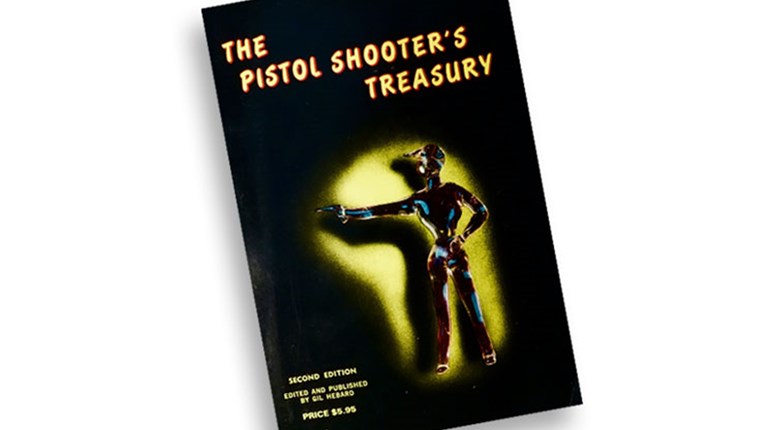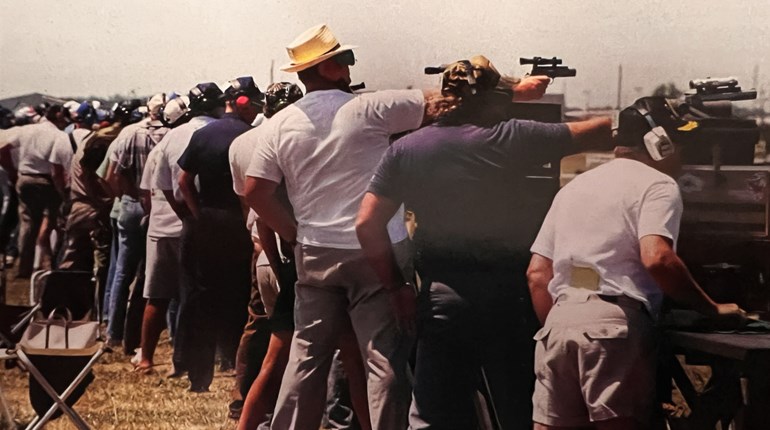
I wish I could poll each of you to discover the number of readers who believe:
- Thoughts pop in your head all day and they cannot be controlled.
- People are born with confidence.
- People are permanently optimistic or pessimistic.
In the past, I would have told you these statements are true without question. I thought mental toughness meant that I could “execute the fundamentals [of pistol shooting] under stress on cue and regardless of external factors.” It sounded good at least.
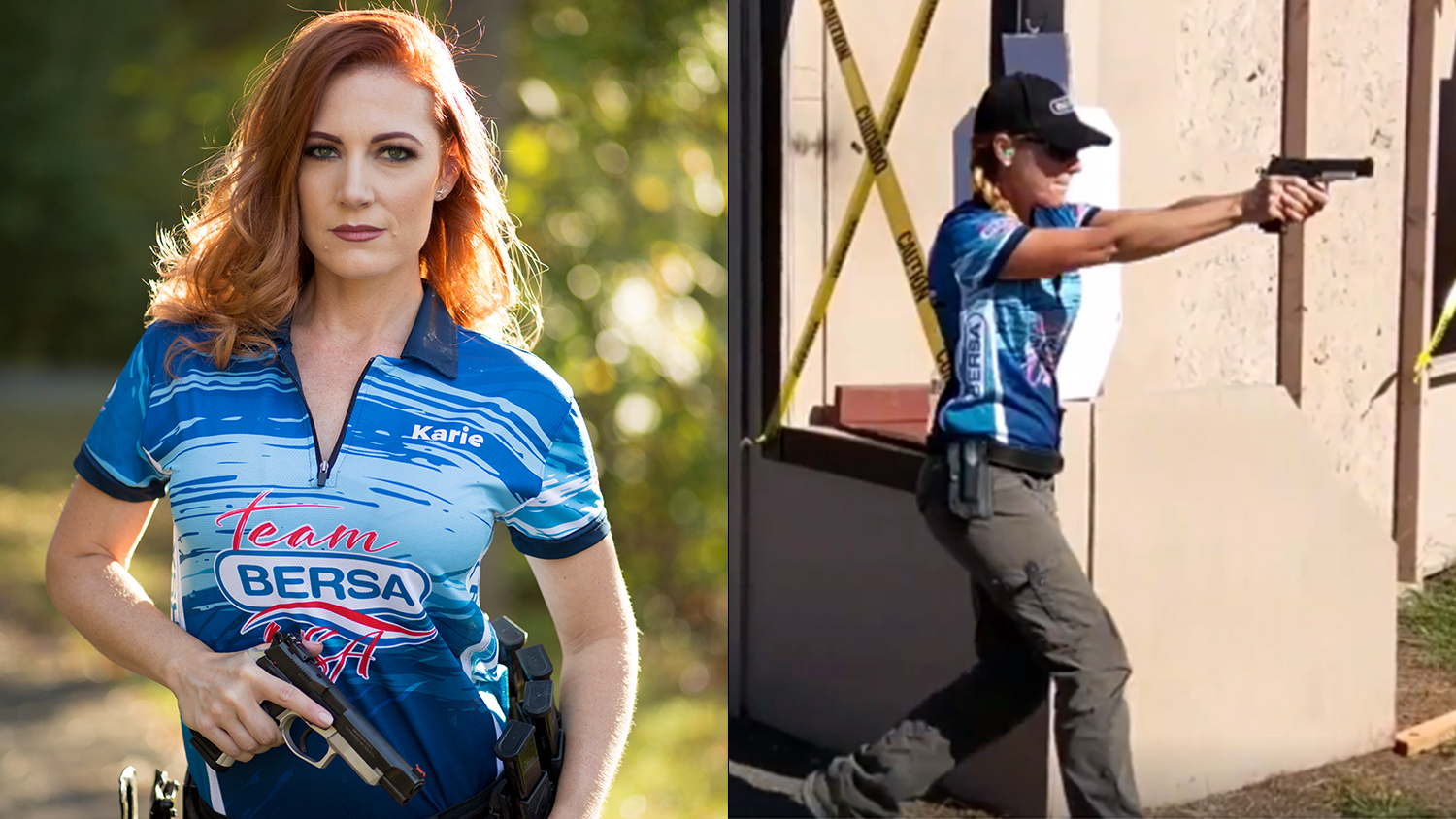
How does one develop mental toughness?
Working with Dr. Raymond Prior was a liberating and empowering experience. He gifted me the knowledge that I was capable of making these choices. I freely admit this concept seems like common sense now. I can’t explain why the idea had never occurred to me, and certainly no one shared this idea with me before. Choices, you say? What sort of choices?
I choose to have a great attitude. I try to find something good in every performance, even if it was less than stellar. If I make a mistake, I learn from it and then move on. If I do something amazing, I replay it over and over in my mind and talk about it frequently. The most difficult part of having a great attitude is learning how not to complain. It may feel good at first, but all it does is bring you and everyone in ear shot down. I’m still struggling with the complaint department, but as a rule I never complain during a match.
I choose to give my best effort. Even when the weather is foul, I’m tired, would rather sit by the fire at home, I stay and do my best work. Everyone is dealing with the same conditions. My best in the mud may be better than someone else’s best in the mud—because I don’t succumb mentally to the frustration of being muddy.

I choose to be a great teammate. This one surprised me the most but if you are a good teammate the positive energy, praise, and jokes create an electric, cheerful atmosphere that is conducive to remarkable shooting performances. I acknowledge and praise a fellow squad member that has an impressive run. I don’t offer or seek sympathy or acknowledgement for a bad run, they are ignored. But most of all, I do not complain about anything—the weather, a bad call, or a penalty—instead, I stay upbeat.
By making these good choices I have created a positive feedback loop, which increases my confidence—and also creating tangible results.
Why is mental toughness important?
They say that the shooting sports are 90 percent mental. In USPSA, a Grand Master will be armed with a sub-second draw, 1/5-of-a-second splits and transitions, and a two-step reload. Physically, the top tier athletes perform at the same level, but the mental game is what determines who will take first place. I focus just as much time on “working out” my mental toughness techniques as I spend training at the range or in the gym—because my mental attitude is ultimately what can make or break my performance in a match.
Results
Since working with Dr. Prior, and reading his remarkably comprehensive book, Bullseye Mind, I have grown as a competitive shooter. My USPSA classification improved from C to B, and I have on occasion taken first in my class, as well as High Lady. Now, I am actively working to improve my mental toughness. And, I have more fun at matches with my friends and squad mates.














